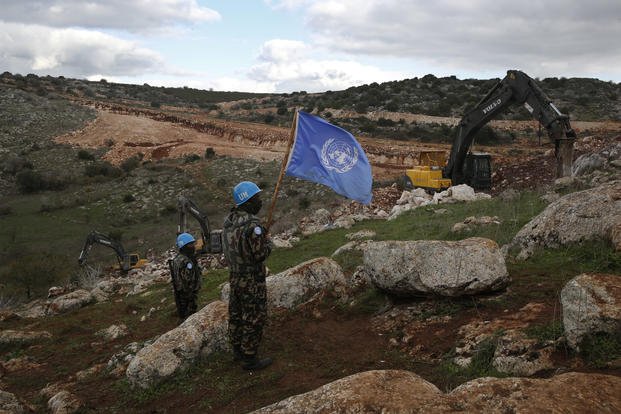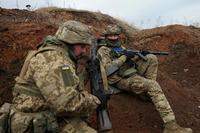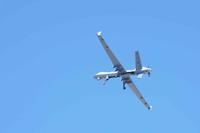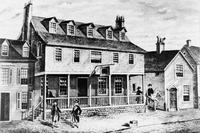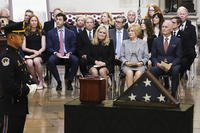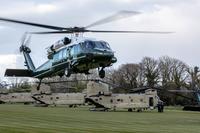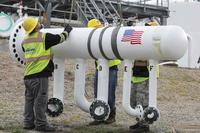BEIRUT (AP) — Three United Nations military observers and a Lebanese interpreter were wounded Saturday when a shell exploded near them while patrolling the southern Lebanese border, the U.N. peacekeeping mission in Lebanon said.
The military observers are part of the United Nations Truce Supervision Organization, which supports the U.N. peacekeeping mission in southern Lebanon, known as UNIFIL. UNIFIL spokesperson Andrea Tenenti told The Associated Press that the four wounded were in stable condition.
Tenenti said UNIFIL had informed all warring parties of their patrols as usual and the observers' vehicle was carrying clear U.N. markings. The three military observers, from Chile, Australia, and Norway, were unarmed, he said.
The blast came as clashes between the Israeli military and Hezbollah militants escalated in recent weeks. Both sides have been exchanging fire since the Israel-Hamas war in Gaza broke out, propelling concerns that the near-daily clashes along the border known as the Blue Line could escalate into a full-scale war.
U.N. Secretary-General Antonio Guterres condemned the explosion and expressed “grave concern” at the daily exchanges of fire between armed groups in Lebanon and Israeli forces since Oct. 8 — the day after Hamas’ surprise attack on southern Israel, U.N. spokesman Stephane Dujarric said.
The U.N. chief said the clashes, in violation of the 2006 Security Council resolution that halted hostilities in a war between Israel and Hezbollah militants, have caused dozens of civilian fatalities, destroyed residential and agricultural areas, and displaced tens of thousands of people on both sides of the Blue Line, Dujarric said.
“These hostile actions have not only disrupted the livelihoods of thousands of people, but they also pose a grave threat to the security and stability of Lebanon, Israel, and the region,” the U.N. spokesman said.
Guterres urges all action to refrain from further violations of the 2006 cessation of hostilities “and to pursue a diplomatic solution to the crisis,” Dujarric said, adding that the U.N. chief stands ready to support such efforts.
Local Lebanese media, citing security officials, said an Israeli drone strike targeted the observers in the southern village of Wadi Katmoun near the border town of Rmeich.
The Israeli military said on social media platform X: “Contrary to the reports, the IDF did not strike a @UNIFIL —vehicle in the area of Rmeish this morning.”
Tenenti said UNIFIL was “investigating the origin of the explosion” but it was difficult to put investigators on the ground immediately because of the ongoing exchange of fire.
“The targeting of peacekeepers is unacceptable,” Tenenti told The Associated Press. “We repeat our call for all actors to cease the current heavy exchanges of fire before more people are unnecessarily hurt.”
Lebanese caretaker Prime Minister Najib Mikat condemned the incident in a statement.
UNIFIL was created to oversee the withdrawal of Israeli troops from southern Lebanon after Israel’s 1978 invasion. The U.N. expanded its mission following the 2006 war between Israel and Hezbollah, allowing peacekeepers to deploy along the Israeli border to help the Lebanese military extend its authority into the country’s south for the first time in decades.
